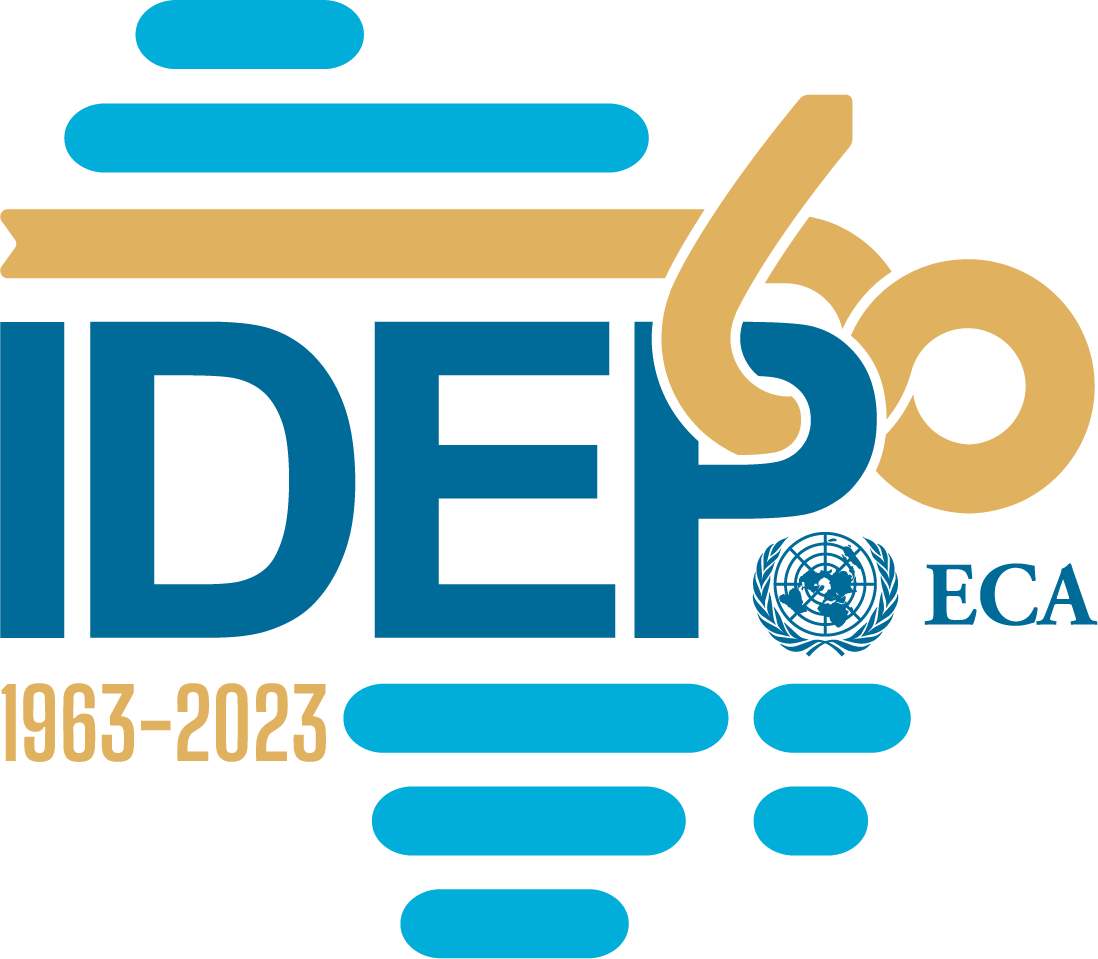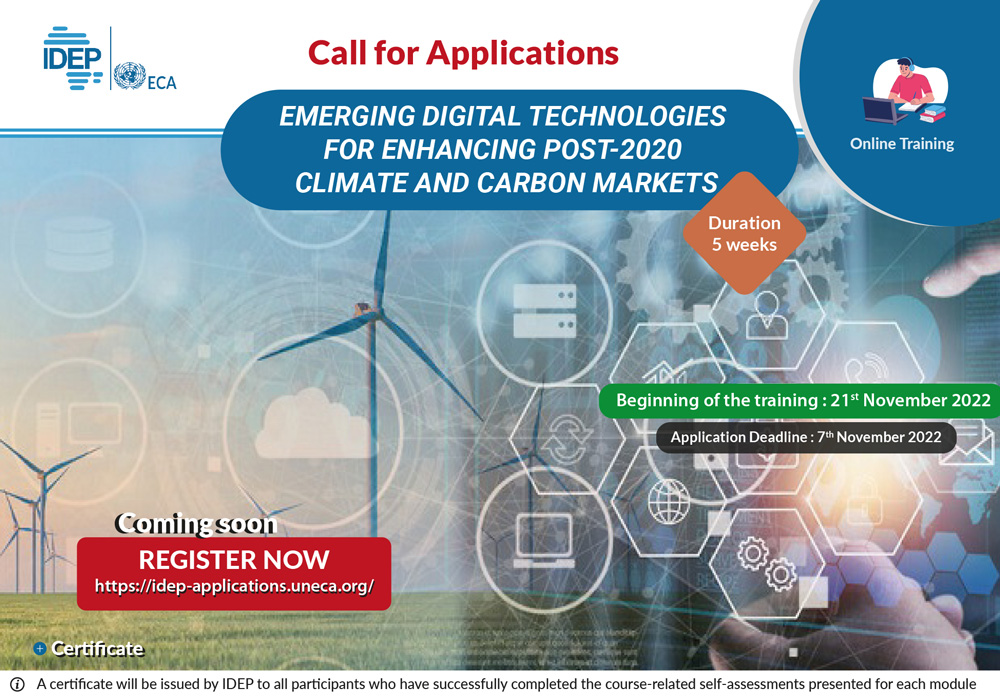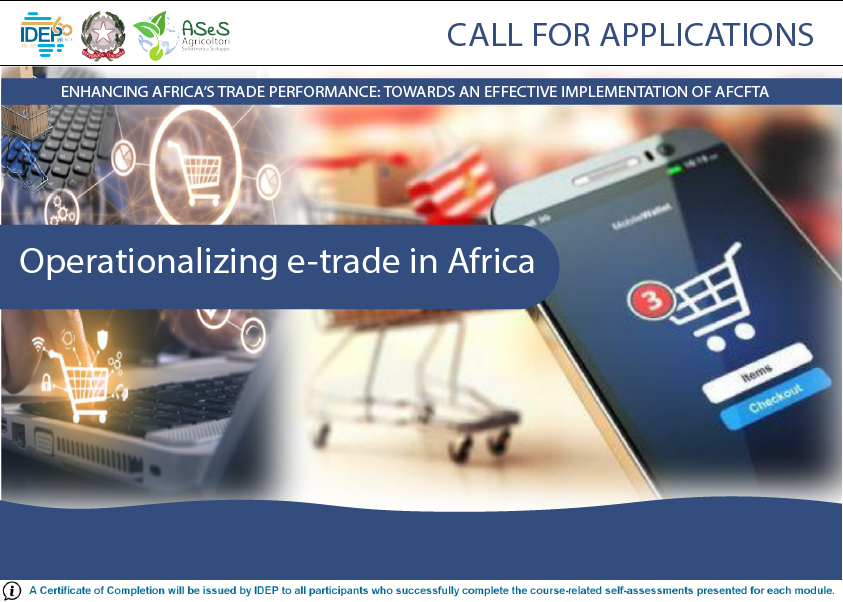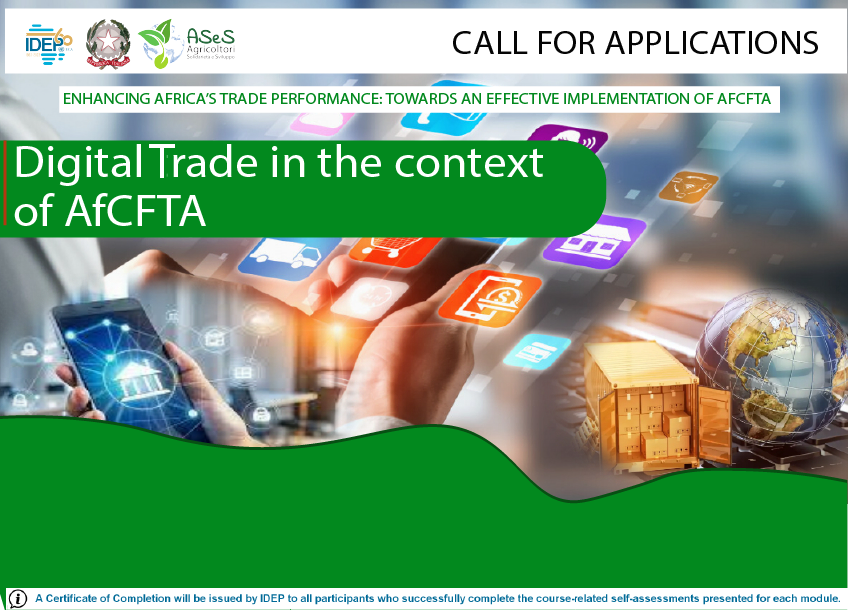Emerging digital technologies for enhancing post-2020 climate and carbon markets
Announcement in Brief
|
Programme Rationale
As highlighted in the previous course dealing with ‘Climate and Carbon Market Readiness’, the Paris Agreement established the post-2020 climate and carbon markets. However, given the advances in the information and communication technology (ICT) space, as well as the digital space, this course seeks to deliberate on how the emerging digital technologies can be harnessed to enhance the post-2020 climate and carbon markets.
In 2021, the Asian Development Bank acknowledged the role played by digital technologies for climate action, disaster risk reduction and resilience, as well as environmental sustainability. To this end, three stages in the development of digital technologies were identified. Stage I is associated with the development of the Internet, Satellite Imagery, Geographic Information Systems (GIS), Remote Sensing, Mobile Phones, and Databases. Stage II brought in the now popular social media, Apps, Smartphones, and Cloud Computing. Stage III introduced Artificial Intelligence, Machine Learning, Deep Learning; Internet of Things and Smart Systems; Distributed Ledger Technology and Blockchain; Big Data and Predictive Analytics; Virtual and Mixed Reality; Robotics and Unmanned Vehicles. While some of these technologies will not be discussed in depth as they relate to climate and carbon markets, several will be considered.
Objectives
The course will have the following objectives :
- To enhance understanding regarding digital technologies with the intenion to use such in the post 2020 climate and carbon markets.
- To have paricipants appreciate the need to use digital technology plaforms for climate and related acion.
- To provide insights into challenges associated with carbon leakage and unaccounted for carbon credits and responses thereof.
- To enhance capacity on the understanding and uptake of Blockchain and Smart Contracts in post-2020 climate and carbon markets in Africa.
- To assist the African coninent in idenifying opportuniies brought by digital technology plaforms in the climate and carbon markets





